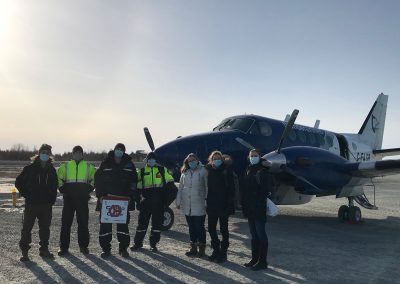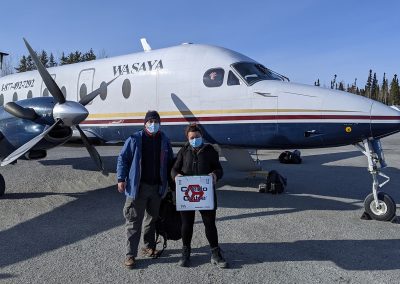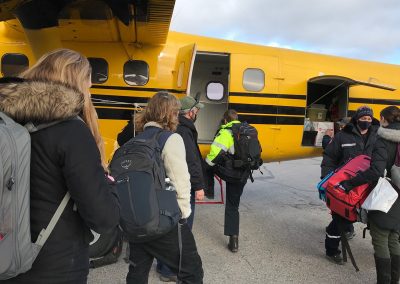Delivering Social Accountability Where its Needed Most
NOSM Supports Operation Remote Immunity
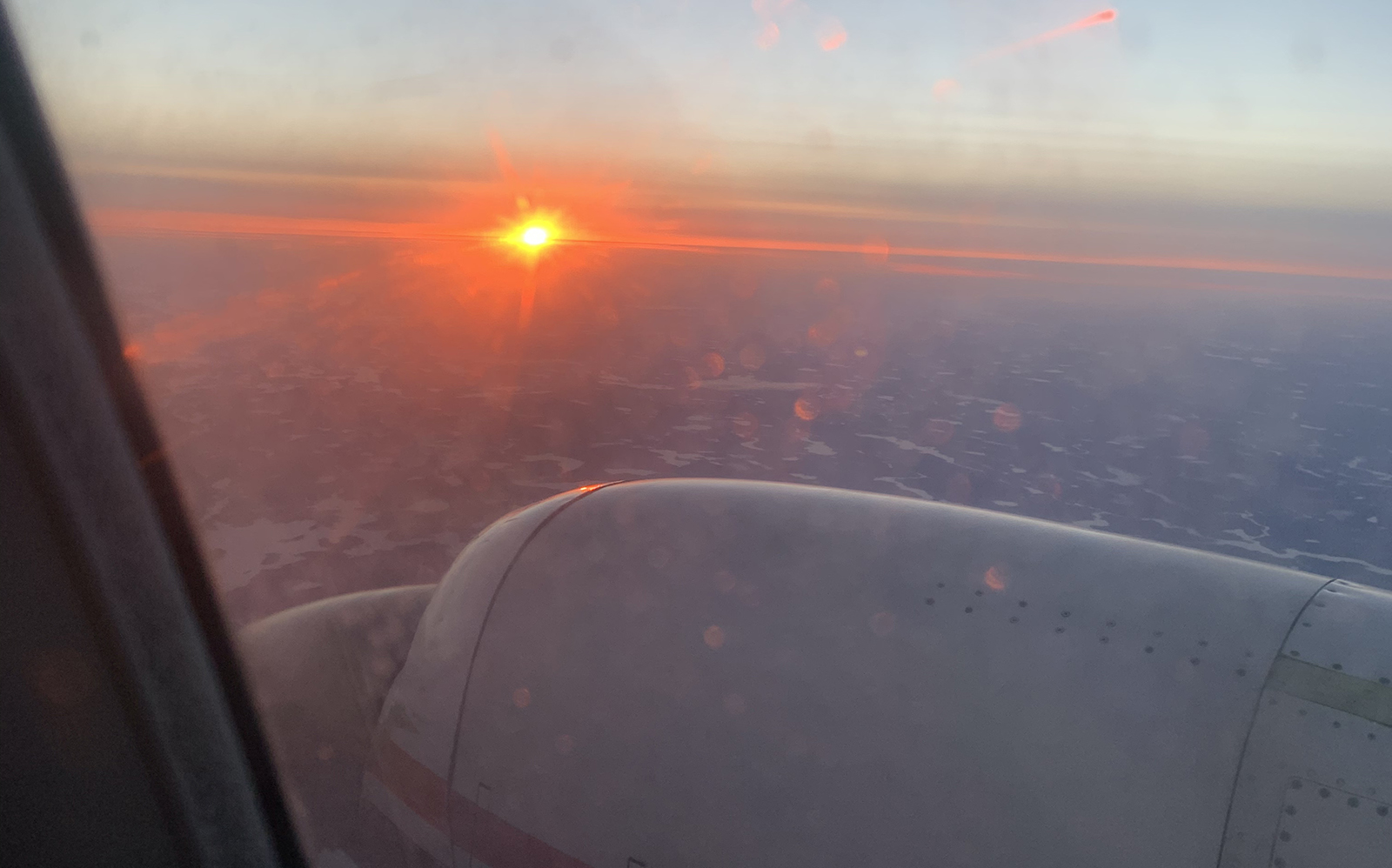

Operation Remote Immunity was an incredibly complex, unprecedented health-care mission. Considering, also the longstanding structural social inequities such as colonisation, systemic racism, intergenerational effects of residential schools, and the repression of self-determination are significant social determinants of health. Chronic exposure to racism is associated with negative mental health and poorer physical health outcomes. These determinants contribute to more prevalent health issues like high blood pressure, diabetes and cardiovascular disease disproportionally affect First Nations, Inuit and Métis peoples in Canada.
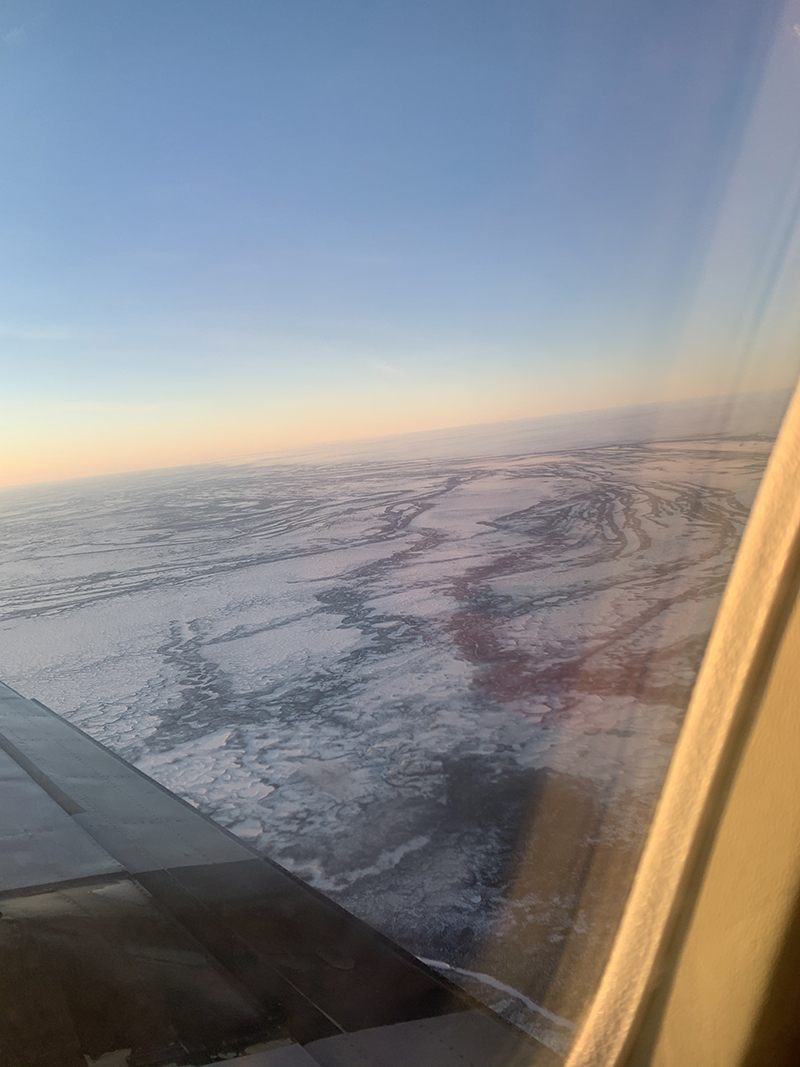
The significance and importance of Operation Remote Immunity cannot be understated. Operation Remote Immunity is the remarkable work of Ornge—Ontario’s provider of air ambulance and critical care transport services—and its many partners. Administrative and health-care professionals from the Weeneebayko Area Health Authority (WAHA), the Sioux Lookout First Nations Health Authority (SLFNHA), the First Nations Inuit Health Branch (FNHIB), the Northern Ontario School of Medicine (NOSM), Queen’s University, the University of Toronto, and others volunteered their time and dedication.
Vaccination teams traveled to 31 remote Nishnawbe Aski Nation communities and Moosonee to administer the COVID-19 vaccine to eligible residents. The planning, logistics, and execution it takes to deliver thousands of COVID-19 vaccines by air was a remarkable effort to help people stay safe. It was especially critical because so many of these communities do not have equitable access to health care, clean drinking water and food security.
“I volunteered because after 40 years of providing care to Indigenous patients in Northwestern Ontario, I saw this as an opportunity to give something back to this very vulnerable and disadvantaged population. My involvement as a NOSM faculty member was actually going to make a direct difference in these communities. The biggest lesson I took away from the experience is that individual First Nations communities are very far from homogenous and differ from each other sometimes quite dramatically. Secondly, I learned that kindness and generosity are essential features for clinicians to have if they are to be competent practitioners; the medical student who was willing to carry a sleeping infant and the paramedic who went out of his way to buy a child a yoyo after she told him she had asked for one for Christmas but didn’t get it.”
Dr. Bill McCready, NOSM Special Advisor, Senior Associate Dean, and Professor, Thunder Bay
An extraordinary kind of volunteer
NOSM is an award-winning socially accountable medical school and the first medical school in Canada established with an explicit social accountability mandate. Through the School’s new strategic plan, there’s been a renewed commitment to social accountability. NOSM is committed to addressing the health needs of all Northern Ontarians and improving access to quality care through research and education—education that often takes place in the very communities being vaccinated through Operation Remote Immunity.
“I got my feet wet in the Far North fighting forest fires with the Ministry of Natural Resources. During that time, I had the good fortune of being taken under the wing of the local First Nations peoples I worked alongside. It was a huge honour and privilege to be able to offer and provide this little piece of health-care service to remote First Nations— the ‘first’ people who have historically been prioritized ‘last.’ One of the highlights of my deployment was a home visit, where I got to draw up the vaccine which had been flown thousands of kilometres and gently administer it to an Elder in the comfort of her living room. In the time I monitored her, she told me her life story and details of family referring to the pictures on her walls. Needless-to -say, she was feeling fine and I felt honoured.
Beth Crawford, Second-year NOSM medical student, Sudbury
303 responses
to the expression of interest.
22 NOSM teams
deployed.
60 volunteers
selected from NOSM.
Teams with NOSM volunteers deployed to 17 communities: Bearskin, Deer Lake, Eabametoong, Fort Severn, Kasabonika, Kashechewan, Kitchenuhmaykoosib Inninuwug (Big Trout Lake), Martin Falls, Mishkeegogamang, Muskrat Dam, Neskantaga, North Spirit, Sachigo, Slate Falls, Wapekeka, Webequie, and Wunnumin.
An extraordinary kind of training
Prior to their first deployment, volunteers were fully vaccinated and completed mandatory training on Moderna COVID-19 vaccine storage and administration. Through Ornge’s learning portal, volunteers completed mandatory training on fixed-wing aircraft safety, operational chain of command, how to dress appropriately for survival, and the use GPS technology in case of emergency.
With most volunteers, learning how to use GPS or call an SOS may have been unsettling. For these volunteers, it made the adventure even that more exhilarating.
Another eight hours was spent on mandatory cultural training through the Ontario Indigenous Cultural Safety (ICS) Program. This cultural safety training highlighted the legacies of colonisation that continue to affect health-care accessibility and outcomes for Indigenous peoples and communities.
Each Saturday, vaccination teams would deploy to the staging area. Depending on where the volunteers were located, they may have flown to the community where they would be based for the week.
Sunday morning was dedicated training for the specific deployment and communities. The first order of the day was a COVID test and a reminder to observe social distancing, masking and hand-washing or sanitizing throughout the week.
“I was very excited to read about Operation Remote Immunity last January, and I applied immediately. This project is history in the making and I am very proud to have been a part of it. An additional bonus was meeting other NOSM faculty and learners, as well as Ornge staff and nursing. Our team quickly became a cohesive unit and I am confident we will keep in touch. I thank NOSM for being a part of this important project. The memories will last a lifetime.”
Dr. Stacy Desilets, Family Physician and NOSM Associate Professor, Temiskaming Shores
The longest discussion in this full-day of preparation was focussed on vaccination confidence and hesitancy. The volunteers going into the communities were keenly aware that First Nations peoples had reason to be skeptical or untrusting of the health-care system knowing they’ve often experienced or witnessed systemic neglect and systemic racism.
“I did both my undergraduate medical education and postgraduate training in family medicine at NOSM so when the opportunity to become involved in Operation Remote Immunity came up, it seemed like the perfect initiative to use a variety of the skills and training I have received during my medical education in Northern Ontario. It was a privilege to collaborate with allied health-care professionals and community members to provide care to remote Indigenous communities. The entire experience, including the extensive preparation for the deployment as well as the in-community experience in Kitchenuhmaykoosib Inninuwug, was a fulfilling, eye-opening, and an educational experience that I will remember and cherish forever.”
Dr. Alexandra Eaton, Second-year NOSM family medicine resident, Sudbury
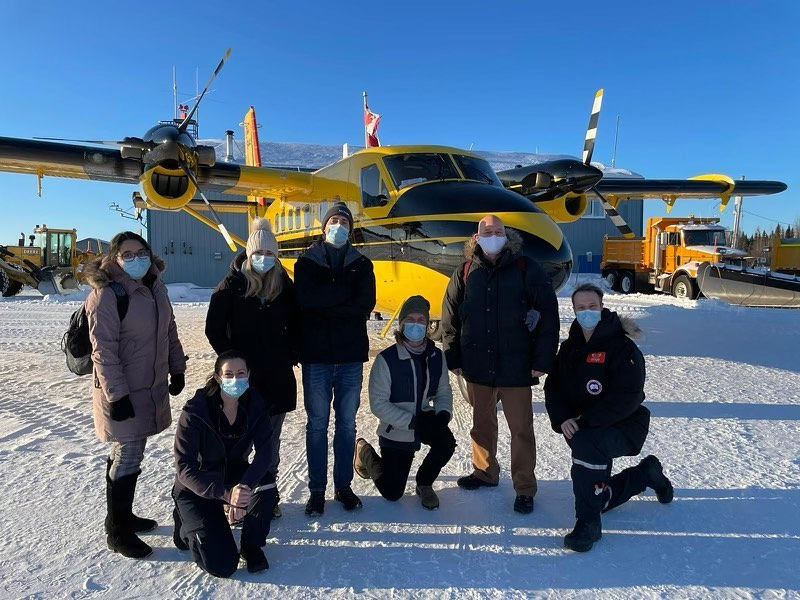
An extraordinary clinic
There’s no doubt about it, the heart of these vaccination clinics were the community members themselves. In each community, there are multiple stories about how community members came together to set up clinics in school gymnasiums, health-care centres or other facilities that were easy to access.
“It has been an honour to assist in one remote community’s fight to protect themselves from the devastating effects of COVID-19. KI suffered the loss of its first community member from COVID-19 during our second clinic in the community. The impact and reverberations were felt throughout the community and by all of the exceptional team sent by NOSM and Ornge, as well as the exemplary Canadian Rangers team who are also community members.
Dr. Jonny Grek, Family Physician and NOSM Assistant Professor, Kenora
“I am thankful for the opportunity to visit North Spirit Lake and Kingfisher Lake as part of Operation Remote Immunity, bringing the Moderna vaccine and with it, hope and safety to these isolated Indigenous communities. I worked alongside a team of amazing people, shared dozens of conversations with the Elders and younger community members, and returned home day after the 12-hour days filled with gratitude, knowing I helped to make a difference during this pandemic.”
Jacalyn Cop-Rasmussen, Manager, Academic Health Sciences Network, Thunder Bay
Dr. David Marsh, NOSM’s Associate Dean of Research, Innovation, and International Relations, was part of the team that administered the first dose of the COVID-19 vaccine in Kitchenuhmaykoosib Inninuwug First Nation. You can hear about his experience in this interview with CBC Radio.





